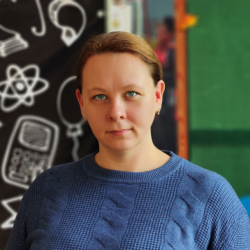
The 7 th of December. Tuesday. Class work.
Conditional Sentences (Type 1)

If all the seas were one sea
What a great sea that would be?
If all the trees were one tree
What a great tree that would be.


Условные предложения первого типа используются для того, чтобы рассказать о реальных или возможных ситуациях в будущем и их возможных результатах.

If + Present Simple , Future Simple
_____ X
If … V(s), will +V

_____ X
If … V(s), will +V
If it snows, I will stay at home.
X _____
Will + V if … V(s)
I will stay at home if it snows.

Translate sentences into Russian.
- If the river is frozen, people will skate.
- If you don’t leave us alone, we’ll call the police.
- If it is snowy and sunny, children will plаy snowballs.
- If the bags are too heavy I’ll help you carry them.
- If you don’t take the map, we’ll get lost in the city.
(Если река замерзнет, люди будут кататься на коньках.)
(Если ты не оставишь нас в покое, мы вызовем полицию.)
(Если будет солнечно и снежно, дети будут играть в снежки.)
(Если сумки слишком тяжелые, я помогу вам их нести.)
(Если ты не возьмешь карту, мы заблудимся в городе.)


Put the verbs in brackets into correct form:
1)If he … (practice) every day, he … (become) a champion.
2) She … (help) us if we … (ask) her.
3) If they … (have) enough money, they … (open) a restaurant next year.
4)I … (not talk) to you anymore if you … (insult) me
5) If Bob … (not keep) his word, Anna … (be angry) with him.
1)If he practice s every day, he will become a champion.
2) She will help us if we ask her.
3) If they have enough money, they will open a restaurant next year.
4)I will not talk to you anymore if you insult me
5) If Bob does not keep his word, Anna will be angry with him.

Correct the mistakes.
1. If the weather turns bad tomorrow, I does not go to the country.
2. If it snows at the weekend, we will makes a snowman.
3. If it rain on Saturday, they will not go to the cinema.
4. If the weather turns fine, Kate will plays in the park.
5. Children wills swim in the river if it turns sunny tomorrow.
will
make
rains
play
will

Say the sentences in the first conditional.
- you (eat) all that chocolate/ you (feel) sick (if)
2. you( not have) breakfast /you (not be able) to concentrate
(if)
3. you (feel) cold /put on a jumper (if)
4. she (not see) a doctor/ she (not get) better (if)
5. you (get off) the bus / you (see) a large white building (if)
If you eat all that chocolate, you will feel sick.
If you do not have breakfast, you will not be able to concentrate.
If you feel cold, put on a jumper.
If she does not see a doctor, she will not get better.
If you get off the bus, you will see a large white building

Thanks for attention!





























